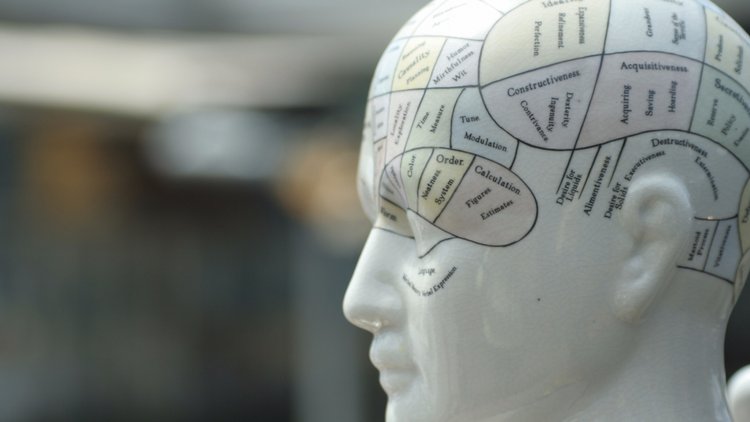During your day to day interactions, you have probably come across people who are very good listeners. They seem to have a word of wisdom for any situation and are also skilled in delivery of the information. These people are mostly very considerate and caring. Even when you haven’t found the solution to your problem, somehow, they leave you feeling optimistic and hopeful. Such people are said to be emotionally intelligent.
Emotional intelligence is the ability to manage, understand and express feelings effectively. An emotionally intelligent person will also understand those around them. According to studies, people who perform best at their work are known to have high emotional intelligence.
When it comes to the formation, enhancement, and development of close relationships, emotional intelligence is very important. Unlike one’s IQ, which does not significantly change over time, emotional intelligence can increase and evolve if you desire to grow it.

How to Improve Emotional Intelligence
1. Observe Your Feelings
When you react emotionally to something, it is because you connect with it. This could be because it reminds you of a similar incident in your past. During your day to day activities, it is easy to lose touch with your emotions. When you are unconscious about your emotions, you miss out on info your emotions might want to communicate. When you pay attention to how you feel, you learn to trust your emotions, and this makes it easy for you to manage them and also to relate better with others.
2. Do Not Dismiss the Feelings
Most people tend to dismiss their feelings before they analyze them. It is important to take time to think through your emotions. Emotions go through stages - rising, peaking and fading. It is important to allow the emotions to travel through these stages. When you allow your emotions to go through all the stages, you give yourself time to figure out why you're feeling the way you are.
3. Do Not Interrupt the Emotion
Most times, you find that you interrupt uncomfortable feelings by distracting yourself and avoiding as much as possible to think about the issue that made you emotional. Wondering how to improve emotional intelligence? One way is to feel the emotion when it comes. When you feel emotional, it is ok to allow yourself a few moments to feel it, uninterrupted.
4. Connect Feelings to Your Thoughts
When you are overcome by emotions, you need to determine what your thoughts are about that particular emotion. Once you determine how an emotion makes you feel, you are better placed to handle it in case you feel that kind of emotion in the future.
5. Pay Attention to Your Behavior
You need to take note of the way you react when you are overcome by different emotions. For instance, having a hard time waking up to prepare for work can be an indication that your job is stressing you. Also, take note of the way this affects your productivity. Self-awareness allows you to be honest with yourself and enables you to manage your emotions better.
6. Be Responsible For Your Behavior and Feelings
This is the most important and yet most challenging step of the process. You are responsible for how you react when you are overcome by emotion. Learn to manage your response to situations that put you on edge. This is how to improve emotional intelligence.
7. Be More Responsive as Opposed to Reactive
The difference between responding and reacting is subtle. A reaction is a process that occurs unconsciously and is triggered by emotions. For instance, you can snap at someone if they interrupt you while you're trying to get something done. A reaction is impulsive. On the other hand, responding to a situation involves a conscious process of taking note of your feelings, and deciding how to react. In this case, if someone interrupted you, you would choose to explain how you feel to the person interrupting you and ask them not to do it again. You would also let them know when the right time to talk to you would be.
8. Be More Empathetic
One way of improving your emotional intelligence is by learning to be empathetic. Empathy is simply your ability to connect to other people’s emotions. If you have been reading and practicing the steps above, you are already in touch with your emotions. You now need to learn to connect to other people’s emotions. When you become empathetic, you will be able to help others to know how to positively handle their emotions. You’re also able to consider how the other person will feel if you react to your emotions in their presence. Highly emotionally intelligent people have mastered the art of controlling their reactions to emotions.
9. Understand How Others Perceive You
People’s perception of you is usually very different to how you see yourself. It is important to understand how people around you see you. This can be hard to decipher all by yourself so ask people you can trust how they see you. This way, you will get an unbiased opinion. This goes a long way in understanding how you react to emotions.
10. Creating a Positive Environment
When you learn to live in a positive bubble, you have little or no room for negative emotions. A positive environment will improve your life, and positivity is contagious.
11. It Is a Learning Process
Mastering emotional intelligence is not something you will do overnight. Actually, it is a continuous learning process. This is because, as humans, we are ever evolving. Once you learn how to improve emotional intelligence, it will be easier for you to notice a change in behavior with regards to your emotion. This makes it easy for you to come up with a way to manage it.
By mastering the steps above, you will harness the power of controlling your emotions. You will start to make your emotions work for you as opposed to working against you.